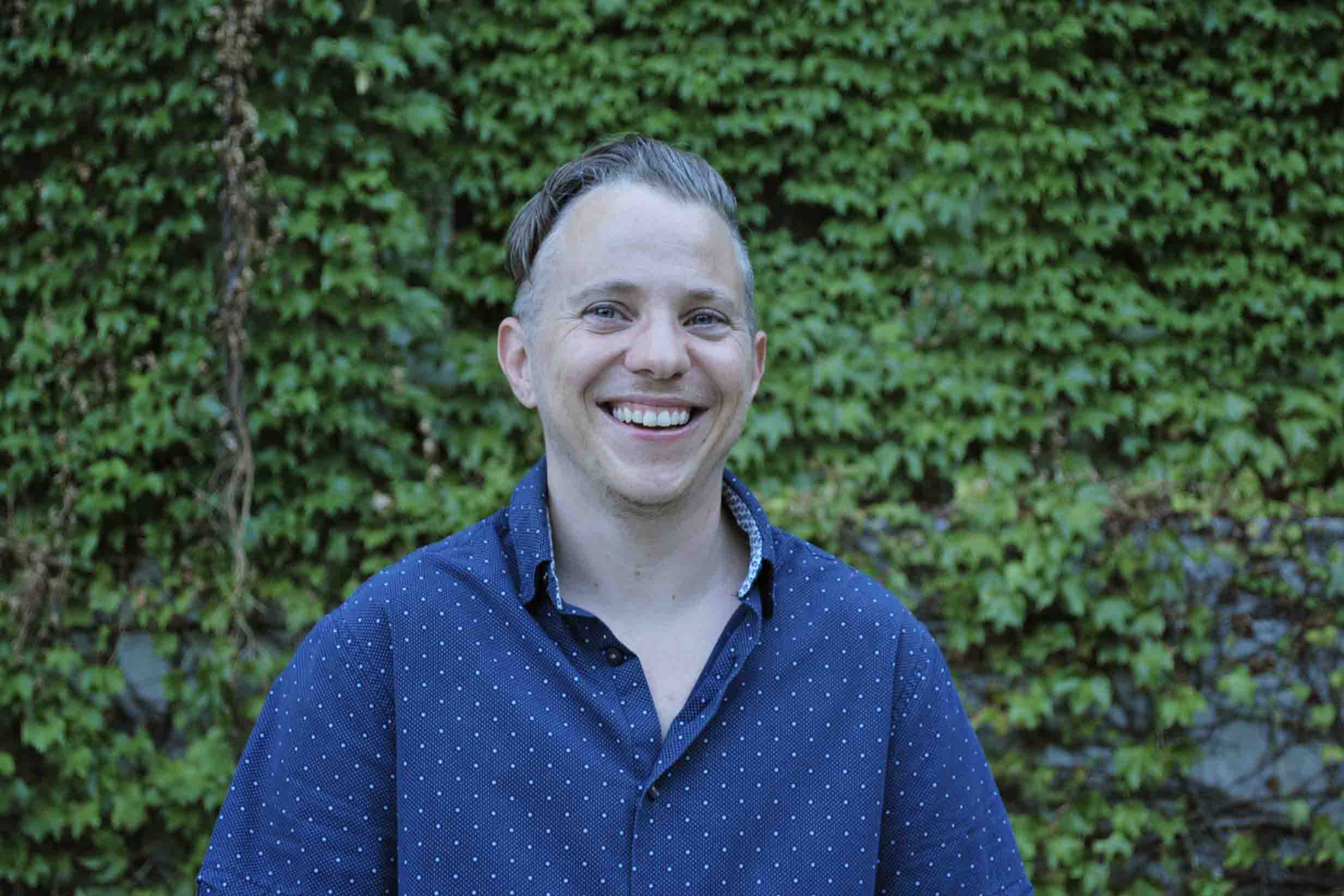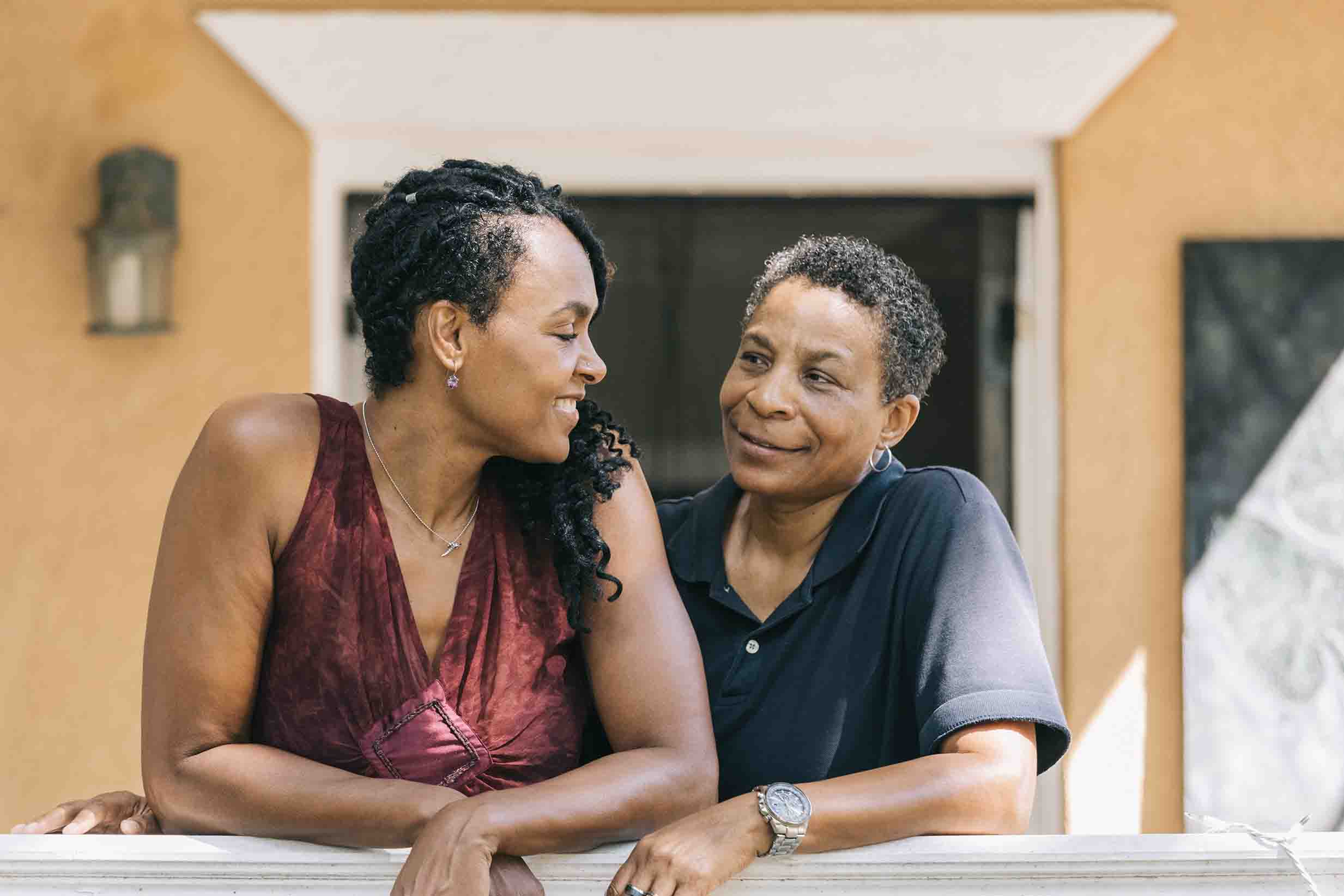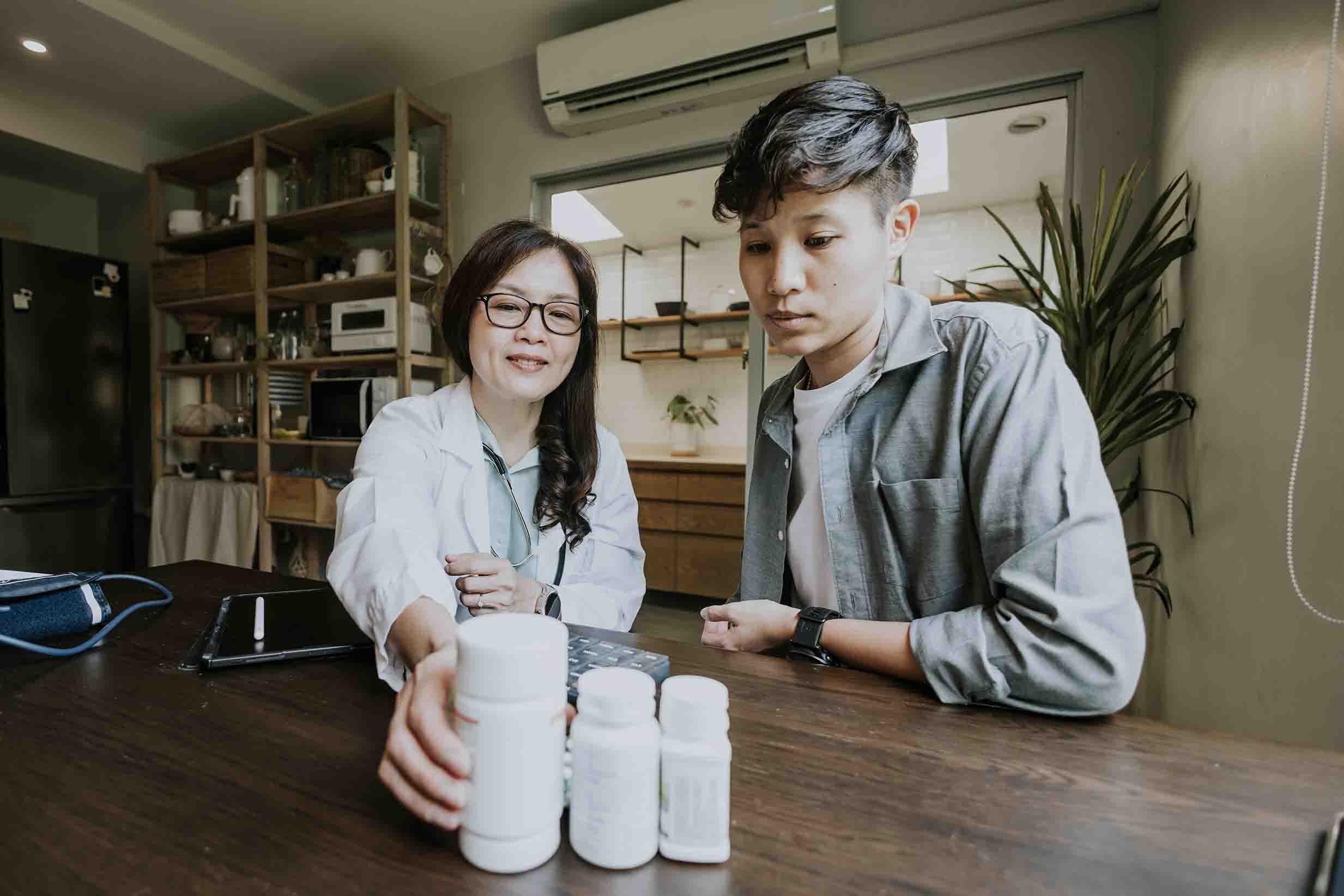Breast Cancer in the LGBTQ+ Community
Updated on July 26, 2025
Breast cancer can happen to anyone, regardless of your gender or sexuality. But the disease may affect lesbian, gay, bisexual, transgender, and queer (LGBTQ+) people differently than cisgender, straight women. LGBTQ+ people have different risk factors, and one study found that LGBTQ+ people with breast cancer face delays in diagnosis and have a three times higher risk of recurrence.
But because there’s little research on LGBTQ+ health, there’s also a lot we don’t know. That lack of research creates extra challenges for people in the LGBTQ+ community looking to stay healthy and reduce their risk.
On top of that, in the U.S., LGBTQ+ people — and especially transgender and nonbinary (TGNB) people — are facing threats to inclusive and affordable healthcare under the Trump administration.
“You have a recipe for a whole group of people who will not have access to the screenings that they need or the welcoming providers they need,” says Scout, MA, PhD, executive director of the National LGBT Cancer Network. “And so that just means that we’re going to be seeing even higher cancer incidence in this population in the coming years.”
These obstacles make it even more important to know your risks and advocate for yourself in the doctor’s office to ensure you get the breast cancer screenings and care you need.
LGBTQ+ people and breast cancer risk
Everyone has a risk of developing breast cancer, but research shows that some people in the LGBTQ+ community may have a higher risk of developing breast cancer than straight, cisgender people because of factors like alcohol consumption, hormone therapy, medical discrimination, and lack of affordable, inclusive care. Financial barriers and mental health issues can also get in the way of living a healthy lifestyle that can lower risk.
Studies have shown that:
LGB cisgender women may have a higher risk of breast cancer than heterosexual women due to risk factors like fewer childbirths and higher alcohol use.
Transfeminine people taking gender-affirming hormone therapy (GAHT), including estrogen, are at a higher risk of developing breast cancer than cisgender men and a lower risk compared to cisgender women, according to a 2019 study in the Netherlands.
Transmasculine people taking GAHT (testosterone) are at a lower risk of developing breast cancer than cisgender or transgender women but at a higher risk than cisgender men, according to the same study.
TGNB people are less likely to get screened for breast cancer than cisgender people.
You may be able to control some breast cancer risk factors, like limiting alcohol consumption, keeping a healthy body weight, being physically active, and not smoking. It’s also important to speak to a doctor well-versed in LGBTQ+ health, whenever that’s an option, about a breast cancer risk assessment and what screenings make sense for you. Ultimately, knowing your risk — and managing it as best you can — can help you defend against breast cancer.
LGBTQ+ people and breast cancer screenings
The best way to catch breast cancer early is through regular mammograms and screenings, but research shows that LGB women and transgender people are less likely to get screenings than cisgender, straight women. According to the 2021 Out: National Cancer Survey conducted by the National LGBT Cancer Network, around 30% of TGNB people never received a cancer screening test prior to their cancer diagnosis.
There are many things that may explain this — LGBTQ+ people may have experienced stigma or bias from health care providers in the past, or have difficulty accessing affordable care. Some people may avoid going to the doctor, missing out on important screenings meant to catch breast cancer early. There may also be uncertainty about screening guidelines, which are especially confusing for transgender and non-binary people.
Screening guidelines are largely based on guidelines for cisgender women and vary widely between sources. The leading transgender health organization World Professional Association for Transgender Health (WPATH) recommends TGNB people taking estrogen follow guidelines for cisgender women and encourages TGNB people taking testosterone to engage in shared decision-making with their healthcare providers about screenings. The American College of Radiology (ACR) recommends no testing if you’ve had top surgery, though other organizations and experts disagree.
If cost is a barrier to accessing screenings, see if you qualify for the National Breast and Cervical Cancer Early Detection Program (NBCCEDP) through the U.S. Centers for Disease Control and Prevention (CDC), which provides free or low-cost screenings for people who make less than a certain income. Other organizations in your area may also be able to connect you with free or low-cost mammograms.
Cancer care
If you’ve recently been diagnosed with breast cancer, you’re most likely planning your treatment, which may include thinking about how to ensure your cancer care is inclusive and affordable.
For TGNB people there may be additional concerns like if or how to continue GAHT during treatment. Some doctors may recommend stopping GAHT, but research is lacking on how breast cancer treatment impacts GAHT and vice versa, so it's important to have an open conversation with your doctor about your wants and needs.
Finding LGBTQ-inclusive providers
Having a cancer team that’s competent in caring for LGBTQ+ people can make a huge difference in your cancer care. An LGBTQ-friendly doctor can offer care in a more comfortable, respectful environment. They may also be more familiar with the latest research on LGBTQ+ health so you’re more likely to get care tailored to your individual needs. And because medical professionals are legally allowed to refuse care to LGBTQ+ patients in nine US states (Alabama, Arkansas, Florida, Illinois, Mississippi, Montana, Ohio, South Carolina, and Tennessee), it may be extra important to find an LGBTQ-inclusive provider depending on where you live. Several directories exist on the National LGBTQ Cancer Network, and word of mouth is always a good way to find providers.
Financial support
Research shows that LGBTQ+ people face financial barriers that stop them from getting the kind of health care they need. Depending on your state and income level, you may qualify for specialized breast cancer care through Medicaid’s Breast and Cervical Cancer Treatment Program. Other resources for financial support are also available.
Cancer support groups
No one should go through their cancer journey alone. Support groups can help make cancer feel less lonely and isolating, but finding one that is welcoming for LGBTQ+ people may be challenging. According to the 2021 Out: National Cancer Survey, more than half of LGBTQ+ respondents said it was important for them to access LGBTQ-welcoming cancer support groups, but only 29% ever received cancer survivor support.
If finding an in-person support group is challenging for you, there are some LGBTQ-specific virtual support group options, including:
CancerCare: Free, 15-week online support group for LGBTQ+ people coping with cancer and currently in treatment and a separate support group for LGBTQ+ caregivers, both led by an oncology social worker.
Young Survival Coalition: A monthly virtual hangout for young (ages 40 and under) LGBTQIA+ survivors of breast cancer. Each meeting is co-led by a peer lead and a licensed clinical social worker.
National LGBTQ Cancer Network: Free, virtual peer-support groups for LGBTQ+ people with cancer offered three times a week.
Inova Peterson Life with Cancer: Monthly virtual support group for LGBTQIA+ people with cancer led by a licensed professional counselor.
Breastcancer.org’s meetups, while not limited to LGBTQ+ people, are diverse and welcoming.
Other resources
It can be a lot of work to chase down resources for treatment and support, especially ones that are LGBTQ-specific. These organizations are a good starting place and provide various services like resource databases, support groups, and awareness campaigns.
National LGBT Cancer Network: A US-based nonprofit that provides LGBTQ+ people with support groups, educational materials, and directories of LGBTQ+-friendly providers.
Queering Cancer: A Canadian nonprofit with a database of resources, personal stories from LGBTQ+ cancer survivors, and educational materials.
OUTpatients: An LGBTIQ+ cancer charity servicing people in the UK affected by cancer by providing online support groups, resources, and in-person events.
CoppaFeel!: A breast cancer awareness organization that partnered with OUTpatients to produce resources specifically for TGNB people.
Even if you’ve experienced negative health care experiences, it’s important to continue to advocate for yourself. Equipping yourself with knowledge about your cancer risk or cancer type is a great way to start.


